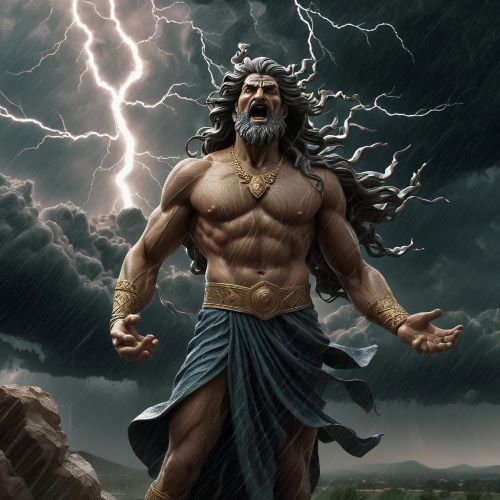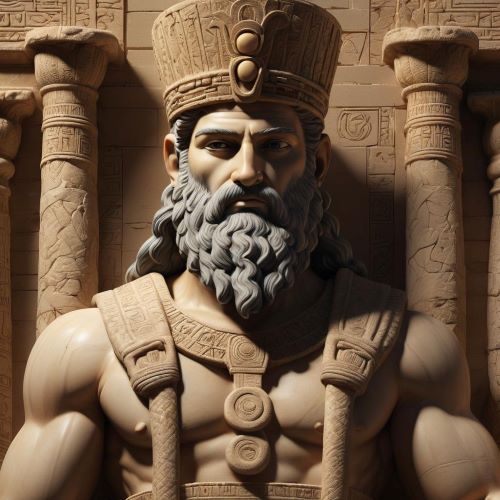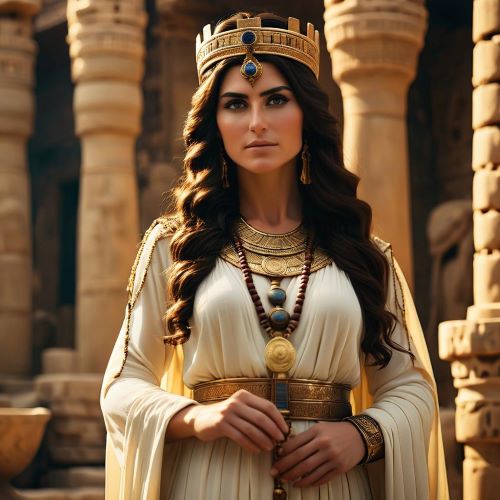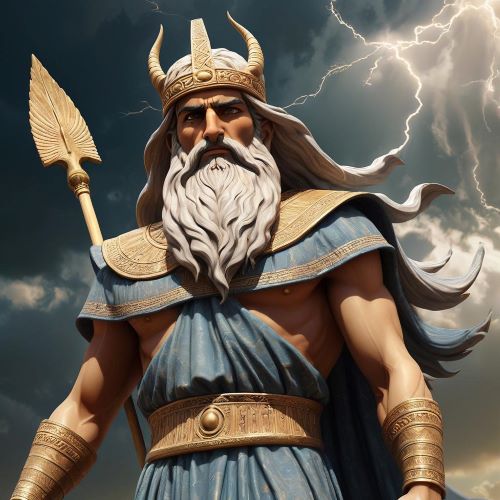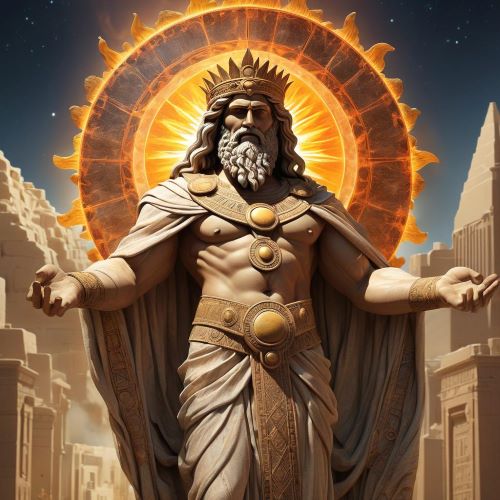Assyrian Gods
Assyrian Gods are central figures in the rich mythology of ancient Assyria, a civilization renowned for its advancements in culture, art, and governance. These deities were deeply integrated into the spiritual and daily lives of the Assyrian people, representing various aspects of nature, human experience, and cosmic order. As embodiments of the forces that governed the world, the Assyrian Gods were invoked for protection, guidance, and blessings in both personal and communal matters. Their stories and attributes reflect the values and aspirations of a society that sought to harmonize the earthly and divine realms.
One of the most prominent Assyrian Gods is Ashur, the chief deity and symbol of the Assyrian empire. Represented as a warrior, Ashur embodies strength, power, and protection, often depicted wielding a bow and arrow. He was considered the guardian of the Assyrian people and the driving force behind their military conquests. Ashur’s importance is reflected in the vast number of temples dedicated to him, as well as the prayers and rituals performed to seek his favor. His role in Assyrian mythology underscores the belief that divine support was crucial for the success and longevity of the empire.
Another key figure among the Assyrian Gods is Ishtar, the goddess of love, war, and fertility. Ishtar’s multifaceted nature highlights the complexities of both creation and destruction. As a warrior goddess, she inspired bravery and strength, while her associations with love and fertility made her a nurturing force in the lives of the Assyrian people. Ishtar’s myths often involve her interactions with both gods and mortals, showcasing her influence on human affairs. Her duality reflects the broader themes of balance and conflict that permeate Assyrian mythology, illustrating the intricate connections between love, war, and the human experience.
The god Ninurta, associated with agriculture, healing, and warfare, also plays a significant role in Assyrian beliefs. As a protector of the land, Ninurta was revered for his ability to ensure bountiful harvests and safeguard the community from external threats. His legends often depict him engaging in epic battles against chaos and evil, reinforcing the idea that the gods actively intervened in the affairs of mortals. The reverence for Ninurta demonstrates the importance of agricultural prosperity in Assyrian society, as well as the belief that divine favor was essential for maintaining harmony and stability.
Shamash, the sun god and deity of justice, further enriches the pantheon of Assyrian Gods. Known for his role in illuminating the truth, Shamash was invoked in matters of law and morality. His presence symbolized the importance of justice and ethical conduct in Assyrian society, where the rule of law was paramount. As a guiding force, Shamash inspired the people to strive for fairness and righteousness, reflecting the cultural values that shaped their interactions and decisions.
The legacy of Assyrian Gods continues to intrigue scholars and enthusiasts alike, offering profound insights into the beliefs and practices of this ancient civilization. The stories of these deities reveal not only the spiritual landscape of Assyria but also the aspirations and challenges faced by its people. As modern audiences delve into these rich narratives, the themes of power, love, justice, and the relationship between humanity and the divine remain relevant, inviting us to reflect on the timeless nature of mythology and its capacity to shape cultural identity. Through the lens of Assyrian Gods, we gain a deeper appreciation for the intricate connections between the past and present, exploring how ancient beliefs continue to resonate in today’s world.
Assyrian Gods are central figures in the rich mythology of ancient Assyria, a civilization renowned for its advancements in culture, art, and governance. These deities were deeply integrated into the spiritual and daily lives of the Assyrian people, representing various aspects of nature, human experience, and cosmic order. As embodiments of the forces that governed the world, the Assyrian Gods were invoked for protection, guidance, and blessings in both personal and communal matters. Their stories and attributes reflect the values and aspirations of a society that sought to harmonize the earthly and divine realms.
One of the most prominent Assyrian Gods is Ashur, the chief deity and symbol of the Assyrian empire. Represented as a warrior, Ashur embodies strength, power, and protection, often depicted wielding a bow and arrow. He was considered the guardian of the Assyrian people and the driving force behind their military conquests. Ashur’s importance is reflected in the vast number of temples dedicated to him, as well as the prayers and rituals performed to seek his favor. His role in Assyrian mythology underscores the belief that divine support was crucial for the success and longevity of the empire.
Another key figure among the Assyrian Gods is Ishtar, the goddess of love, war, and fertility. Ishtar’s multifaceted nature highlights the complexities of both creation and destruction. As a warrior goddess, she inspired bravery and strength, while her associations with love and fertility made her a nurturing force in the lives of the Assyrian people. Ishtar’s myths often involve her interactions with both gods and mortals, showcasing her influence on human affairs. Her duality reflects the broader themes of balance and conflict that permeate Assyrian mythology, illustrating the intricate connections between love, war, and the human experience.
The god Ninurta, associated with agriculture, healing, and warfare, also plays a significant role in Assyrian beliefs. As a protector of the land, Ninurta was revered for his ability to ensure bountiful harvests and safeguard the community from external threats. His legends often depict him engaging in epic battles against chaos and evil, reinforcing the idea that the gods actively intervened in the affairs of mortals. The reverence for Ninurta demonstrates the importance of agricultural prosperity in Assyrian society, as well as the belief that divine favor was essential for maintaining harmony and stability.
Shamash, the sun god and deity of justice, further enriches the pantheon of Assyrian Gods. Known for his role in illuminating the truth, Shamash was invoked in matters of law and morality. His presence symbolized the importance of justice and ethical conduct in Assyrian society, where the rule of law was paramount. As a guiding force, Shamash inspired the people to strive for fairness and righteousness, reflecting the cultural values that shaped their interactions and decisions.
The legacy of Assyrian Gods continues to intrigue scholars and enthusiasts alike, offering profound insights into the beliefs and practices of this ancient civilization. The stories of these deities reveal not only the spiritual landscape of Assyria but also the aspirations and challenges faced by its people. As modern audiences delve into these rich narratives, the themes of power, love, justice, and the relationship between humanity and the divine remain relevant, inviting us to reflect on the timeless nature of mythology and its capacity to shape cultural identity. Through the lens of Assyrian Gods, we gain a deeper appreciation for the intricate connections between the past and present, exploring how ancient beliefs continue to resonate in today’s world.

